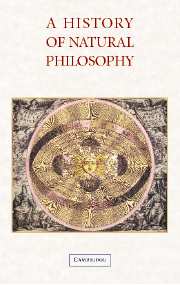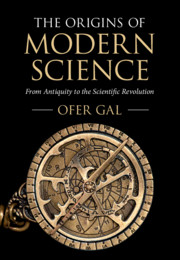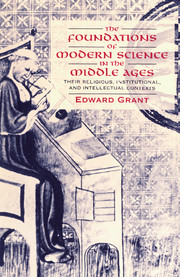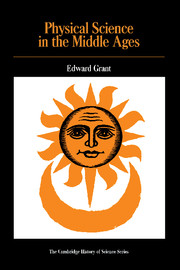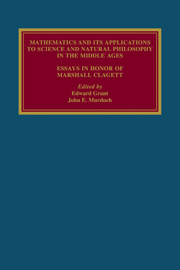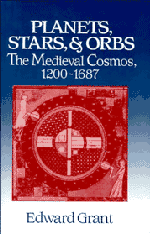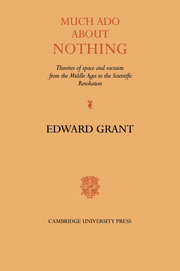A History of Natural Philosophy
Natural philosophy encompassed all natural phenomena of the physical world. It sought to discover the physical causes of all natural effects and was little concerned with mathematics. By contrast, the exact mathematical sciences were narrowly confined to various computations that did not involve physical causes, functioning totally independently of natural philosophy. Although this began slowly to change in the late Middle Ages, a much more thoroughgoing union of natural philosophy and mathematics occurred in the seventeenth century and thereby made the Scientific Revolution possible. The title of Isaac Newton's great work, The Mathematical Principles of Natural Philosophy, perfectly reflects the new relationship. Natural philosophy became the 'Great Mother of the Sciences', which by the nineteenth century had nourished the manifold chemical, physical, and biological sciences to maturity, thus enabling them to leave the 'Great Mother' and emerge as the multiplicity of independent sciences we know today.
- Readable history of natural philosophy, from its pre-literate origins to the nineteenth century, which discusses how this history was important for the emergence of modern science
- Includes discussions of the Arabic and Islamic traditions of natural philosophy
- Has a breadth that will make the book valuable for university courses
Reviews & endorsements
"This excellent book is the distillation of a long and distinguished career in the history of science. Grant rightly acknowledges the key position held by Aristotle in the history of what was traditionally labeled 'natural philosophy.' He extends his study backwards in time to preliterate inquiries into discourse about nature, as well as forwards to early modern and modern periods. In the beginning and end sections, of course, Aristotle is no longer the arbiter of what natural philosophy should be all about, but Grant shows that even for an understanding of modern science, the Aristotelian tradition cannot be ignored. No less relevant are his accounts of styles of argument in early medicine and of the medieval university tradition. Grant's quotations from original texts bring his associated discussion to life. His material ranges over a wide area, and his breadth of vision, combined with his simple style, will make this an invaluable course-book for university use."
- John North, Professor Emeritus of the University of Groningen, The Netherlands
"A product of immense learning, A History of Natural Philosophy, is a rich harvest of knowledge about the development of this important discipline. Arguing that the union of mathematics and natural philosophy made the Scientific Revolution possible, Grant clearly links radical early modern developments, with medieval, Aristotelian natural philosophy. He goes on to show how the modern sciences eventually broke away from the 'Great Mother' of natural philosophy. This book is essential reading for understanding the development of the disciplines of modern science and philosophy."
- Margaret J. Osler, Professor of History, University of Calgary
2007 Outstanding Academic Title -- Choice Magazine
Product details
August 2007Adobe eBook Reader
9780511292101
0 pages
0kg
This ISBN is for an eBook version which is distributed on our behalf by a third party.
Table of Contents
- 1. Ancient Egypt to Plato
- 2. Aristotle (384–322 BC)
- 3. Late antiquity
- 4. Islam and the eastward shift of Aristotelian natural philosophy
- 5. Natural philosophy before the Latin translations
- 6. Translations in the twelfth and thirteenth centuries
- 7. Natural philosophy after the translations
- 8. The form and content of late medieval natural philosophy
- 9. The relations between natural philosophy and theology
- 10. The transformation of medieval natural philosophy from the early modern period to the nineteenth century
- Conclusion
- Notes.

